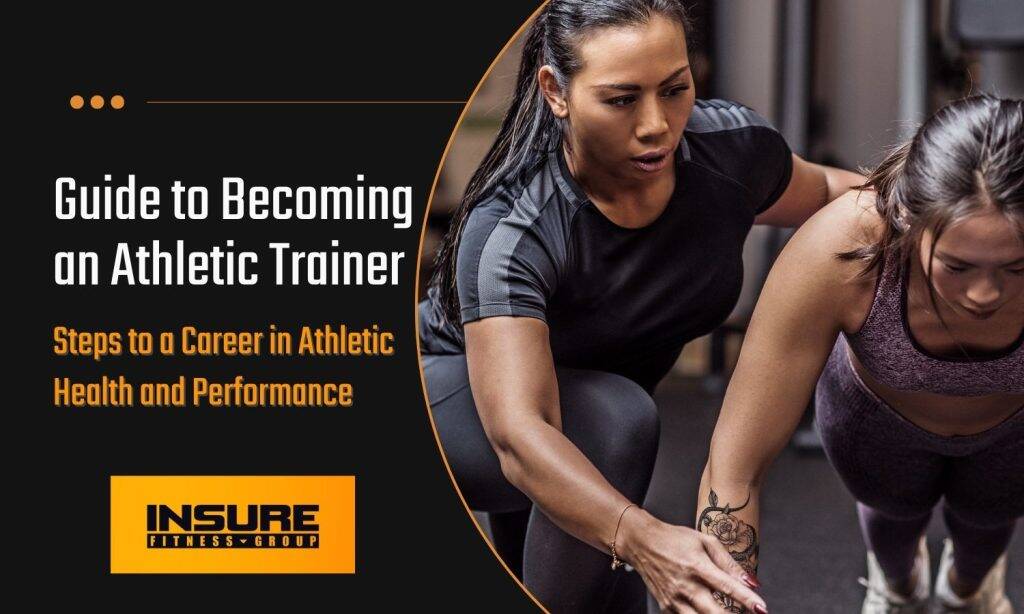

To become a certified athletic trainer, you need to complete an accredited program, gain hands-on experience through internships or volunteering, and pass the Board of Certification (BOC) exam. Athletic trainers work in various settings such as sports teams, schools, and healthcare facilities, providing care to prevent, diagnose, and treat injuries. The career offers opportunities to make a significant impact on athletes’ lives. Continuous education and state-specific licenses are essential for career advancement. If you love sports and want to help people, athletic training could be a great career choice for you.
Athletic trainers are unsung heroes in sports and beyond, providing essential care for athletes in various settings. From educational institutions to professional sports teams, these professionals play a crucial role in:
Job opportunities for athletic trainers are expected to grow by an estimated 14% from 2022 to 2032.
Becoming an athletic trainer is about more than choosing a career – it’s about impacting lives positively.
The role of an athletic trainer extends beyond the sidelines of a sports event. These professionals collaborate with physicians, coaches, and physical therapists to provide comprehensive care for athletes. They play a vital role in developing rehabilitation programs for injured athletes, ensuring a safe and efficient return to physical activity.
Their services aren’t confined to a single setting; athletic trainers work in diverse environments, from schools to healthcare facilities, offering many opportunities.
The athletic training field offers a wealth of diverse job opportunities. Athletic trainers may find rewarding roles in:
In the military and law enforcement sectors, athletic trainers deliver primary care, minimize the risk of injuries, and maintain the health of service members and personnel through sports medicine practices.
The range of opportunities available enables most athletic trainers to discover a niche that perfectly marries their passion and skills, as is the case with many athletic trainers.
A robust educational foundation marks the start of the journey towards becoming a certified athletic trainer. Typically, a degree from a program accredited by the Commission on Accreditation of Athletic Training Education (CAATE) is a requirement for many athletic training positions. Many employers look for this accreditation when hiring professionals in the field. The curriculum includes courses in human anatomy, physiology, and physics, providing students with a holistic understanding of the human body and its response to physical activity.
A Bachelor’s Degree in Kinesiology lays the foundation for a career in athletic training. This degree offers practical competencies in communication, creative thinking, motivation, and a comprehensive understanding of human anatomy and physiology. Core courses typically include athletic training skills assessment, field experience, and therapeutic exercises in athletic training, equipping students with essential knowledge and hands-on experience.
While a bachelor’s degree lays the foundation, many aspiring athletic trainers choose to advance their education with a master’s degree. These programs shift the focus from formal instruction to clinical experience and research, preparing students for advanced roles within the field.
Master’s degree programs in athletic training cultivate skills including clinical diagnosis of sports-related injuries, proficiency in exercise and nutrition, and provision of counseling on mental health.
Beyond the classroom, gaining real-world experience is pivotal in shaping a successful career in athletic training. Internships offer the chance to apply theoretical knowledge in practical settings, develop crucial skills such as rehabilitation techniques, work with student-athletes, and become proficient in CPR.
On the other hand, volunteering offers the opportunity to contribute to the community and cultivate leadership skills.
Internships at sports team organizations offer:
These internships serve as more than stepping stones – they act as launchpads for flourishing careers in athletic training.
These experiences enhance clinical proficiency and adaptability and provide dynamic, challenging, and personally rewarding experiences.
Beyond internships, volunteering for university sports programs or local athletic events offers additional avenues to gain practical experience. Through volunteering, students can develop leadership skills, enhance their time management and organizational abilities, and gain new technical expertise. It’s also a potent demonstration of a student’s dedication to the field of athletic training, showcasing their commitment to their community and their profession.
Becoming a certified athletic trainer is a significant milestone on this career path. To achieve this, individuals must complete a CAATE-accredited program, pass the Board of Certification (BOC) exam, and meet continuing education obligations.
This process, endorsed by the National Athletic Trainers Association, ensures that certified athletic trainers possess the necessary skills and knowledge to provide exceptional care to athletes.
Preparation for the BOC exam represents a vital stage in the journey towards certification. This exam evaluates candidates’ proficiency in the five domains of athletic training, including:
Recommended study materials include:
These resources help candidates identify strong and weak knowledge areas and provide practice tests and explanations.
Certification isn’t the end of the journey. Athletic trainers need to engage continuously in education to sustain their certification. This commitment ensures they stay abreast of the latest advancements in their field, acquire new knowledge and skills, and improve beyond entry-level practice. Continuing education can include activities such as post-certification coursework, live events, and online programs.
Athletic trainers must be licensed or certified in almost all states, ensuring they meet professional standards and qualifications. This licensing or certification is crucial in maintaining the quality and effectiveness of athletic training services. State licensing boards set the requirements for licensure, which can vary significantly. It is thus essential for athletic trainers to familiarize themselves with the specific requirements in the states where they intend to work.
Despite its challenges, understanding state regulations is crucial in becoming an athletic trainer, as some states require athletic trainers to meet specific criteria. Requirements range from current BOC certification to specific educational criteria and even distinct coursework or apprenticeship experiences. Failure to comply with these regulations can result in consequences such as fines and the loss of certification.
The maintenance of licensure demands ongoing diligence. Athletic trainers must complete 50 continuing education units (CEUs) every two years for certification renewal. These CEUs can be obtained through activities like post-certification coursework, live event participation, and online programs.
Succeeding in athletic training involves more than just academic qualifications and certifications. It requires strong interpersonal skills, attention to detail, and decision-making abilities. These skills are crucial in providing effective care to athletes and ensuring a successful career in athletic training.
In the domain of athletic training, interpersonal skills are of utmost importance. Building rapport with athletes, coaches, and other healthcare professionals is key to effective communication and care delivery. Skills such as the following are fundamental for success in this field:
Equally significant are professional attributes such as keeping up-to-date with industry trends, improving assessment and treatment methods, and exhibiting ethical behavior.
Pursuing further education and specialized certifications can increase opportunities for career growth and higher-level positions in the field.
The career trajectory of an athletic trainer brims with potential for growth and progression. With experience and further education, athletic trainers can progress to positions like head trainers and athletic directors or transition into administrative roles.
Broadening career prospects may include obtaining further certifications, specializing in a particular sport or population, or moving to a different work environment. These advanced roles offer the opportunity to provide a broader range of services and establish oneself as an authority in a specific area.
Pursuing further education, such as a doctoral degree or specialized certifications, can open doors to higher-level positions in the field. This not only equips professionals for advanced clinical practice and research positions but also serves as a requirement for securing more esteemed and lucrative positions within the industry.
Becoming a certified athletic trainer is a challenging yet rewarding path. From acquiring a solid educational foundation to gaining real-world experience, passing the BOC exam, and keeping up with continuing education, each step plays a vital role in shaping a successful career in athletic training. With strong interpersonal skills, attention to detail, and a commitment to lifelong learning, athletic trainers can excel in their profession and make a significant difference in the lives of athletes.
To become an athletic trainer, you typically need a bachelor’s degree. Still, many trainers also have a master’s degree, which most employers prefer. Completing a degree from a program accredited by the Commission on Accreditation of Athletic Training Education (CAATE) is important.
Yes, it is possible to make a living as an athletic trainer, with salaries ranging from $30,000 to $70,000 per year, depending on the work setting and experience level. The median annual wage for athletic trainers is around $48,000, with the highest earning potential in professional sports and performing arts events.
To become an athletic trainer in California, you must obtain state licensure through the California Board of Athletic Training by submitting official transcripts, proof of BOC certification, and any additional required documents. Additionally, you must graduate from an accredited professional athletic training education program and pass a comprehensive test administered by the Board of Certification (BOC).
The main duties of an athletic trainer include preventing, diagnosing, and treating muscle and bone injuries and implementing rehabilitation programs to help athletes recover and return to physical activity safely.

Parker, IFG’s Brand Manager since 2022, began his wellness journey in 2020, leading to a significant personal transformation. He holds a journalism degree from Murray State University and started his career as an award-winning journalist in western Kentucky before transitioning into marketing and PR. At IFG, Parker is responsible for writing content, managing The Fit newsletter, and overseeing promotions and collaborations with affiliate fitness organizations.

As fitness instructors, we have one-tenth of a second before our clients start making judgements about our credibility and trustworthiness. Even if you have an

Pursuing a career in personal training is an exciting journey that offers continuous growth and fulfillment. As you advance in your career, specialization in specific

Let’s talk personal trainer risk management! As a personal trainer, you’re always looking out for your clients and helping them achieve their goals. You’re probably
Stay ahead of the fitness game with our exclusive content and offers!
Coverage Without Compromise.
8430 Enterprise Circle Suite 200
Lakewood Ranch, FL 34202
Monday – Thursday, 8:00am – 7:00pm EST
Friday, 9:00am – 7:00pm EST
Choose a Fitness Type Choose a StateThe Liability master policy is issued to the Healthcare Professionals Purchasing Group, LLC. The Identity Protection Plan is powered by Identity Fraud, Inc., Walnut Creek, CA, whose members include members of Healthcare Professionals Purchasing Group, LLC. Gallagher Affinity Insurance Services, Inc. is the insurance partner for Healthcare Professionals Purchasing Group, LLC. Gallagher Affinity Insurance Services, Inc., a 50-state licensed broker, is the broker for all coverage under Healthcare Professionals Purchasing Group, LLC. Gallagher Affinity Insurance Services, Inc. also serves as excess and surplus lines broker for Healthcare Professionals Purchasing Group, LLC. Professional Liability and Commercial General Liability coverage under Healthcare Professionals Purchasing Group, LLC is underwritten in the surplus lines market by an A rated (Excellent) insurance company, per A.M. Best Company. Persons insured by surplus lines companies are not eligible for recourse through any state guarantee fund for the obligations of an insolvent insurer. Healthcare Professionals Purchasing Group, LLC is for health, wellness and beauty professionals and students created for the purpose of providing valuable and important benefits and services to its members. Healthcare Professionals Purchasing Group, LLC is not an insurer. 8430 Enterprise Circle Suite 200, Lakewood Ranch, FL 34202.
Copyright © 2024 Insurance Fitness Group, A Gallagher Company. All Rights Reserved. | Privacy Policy | Terms of Service